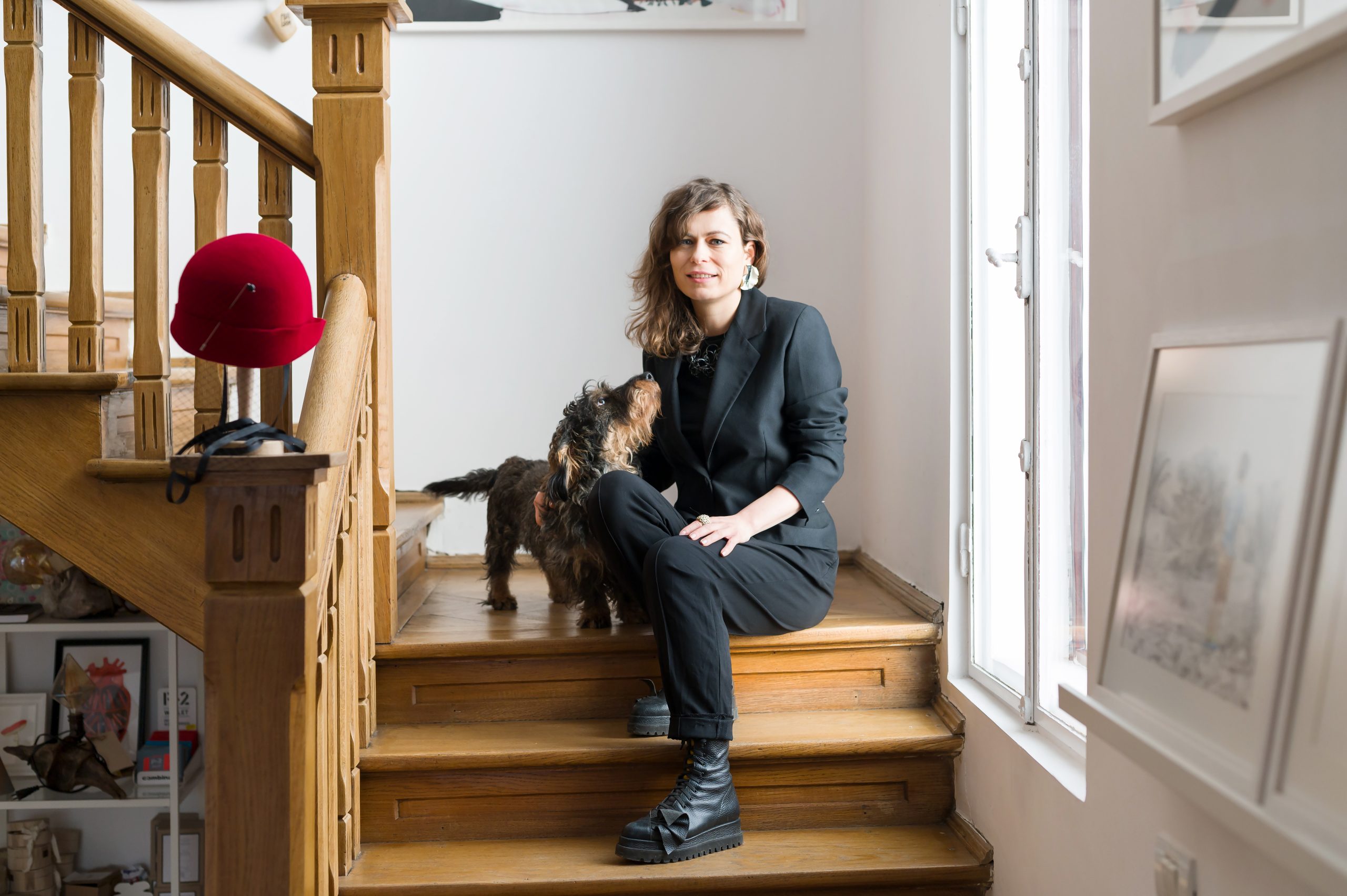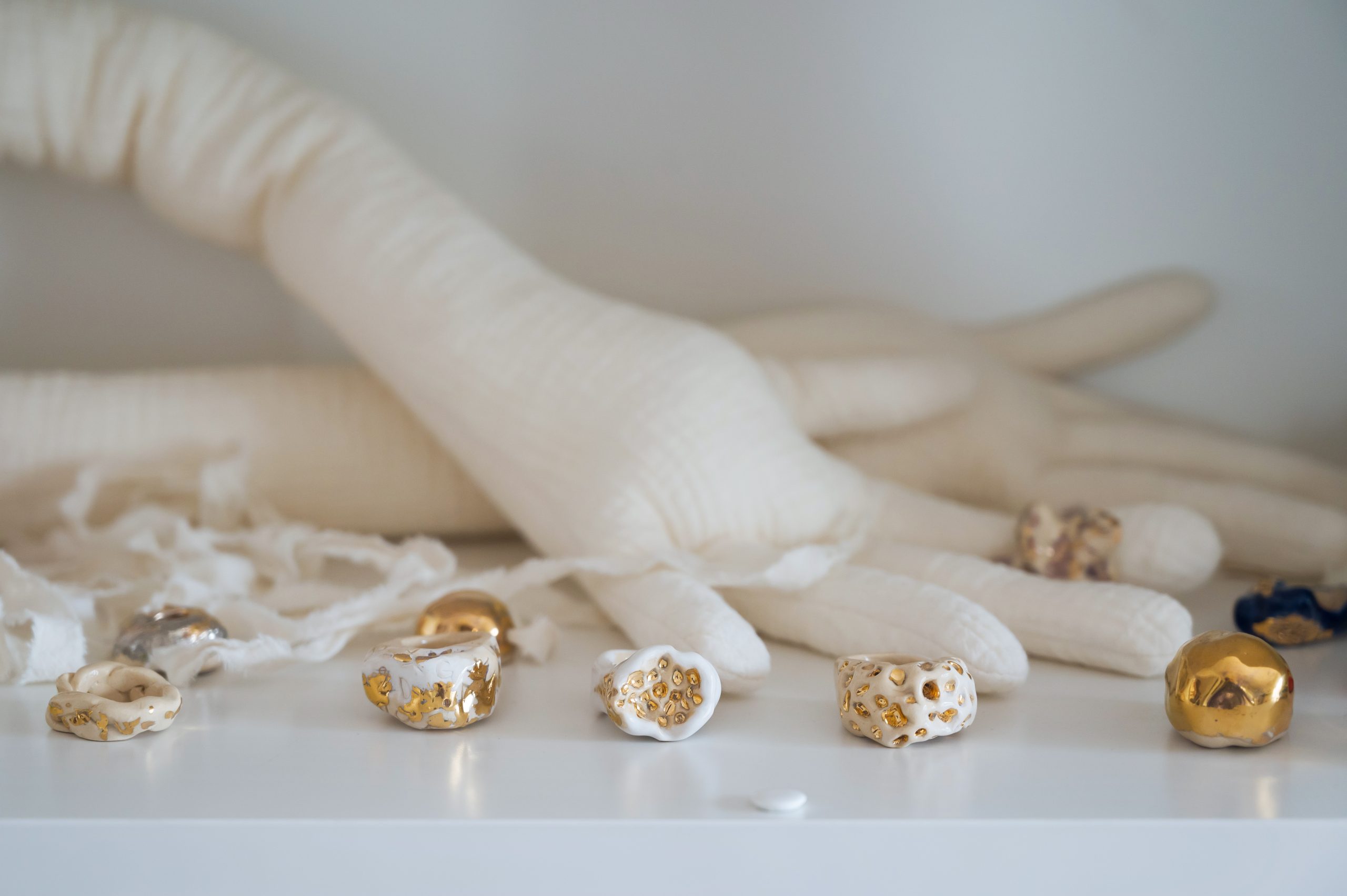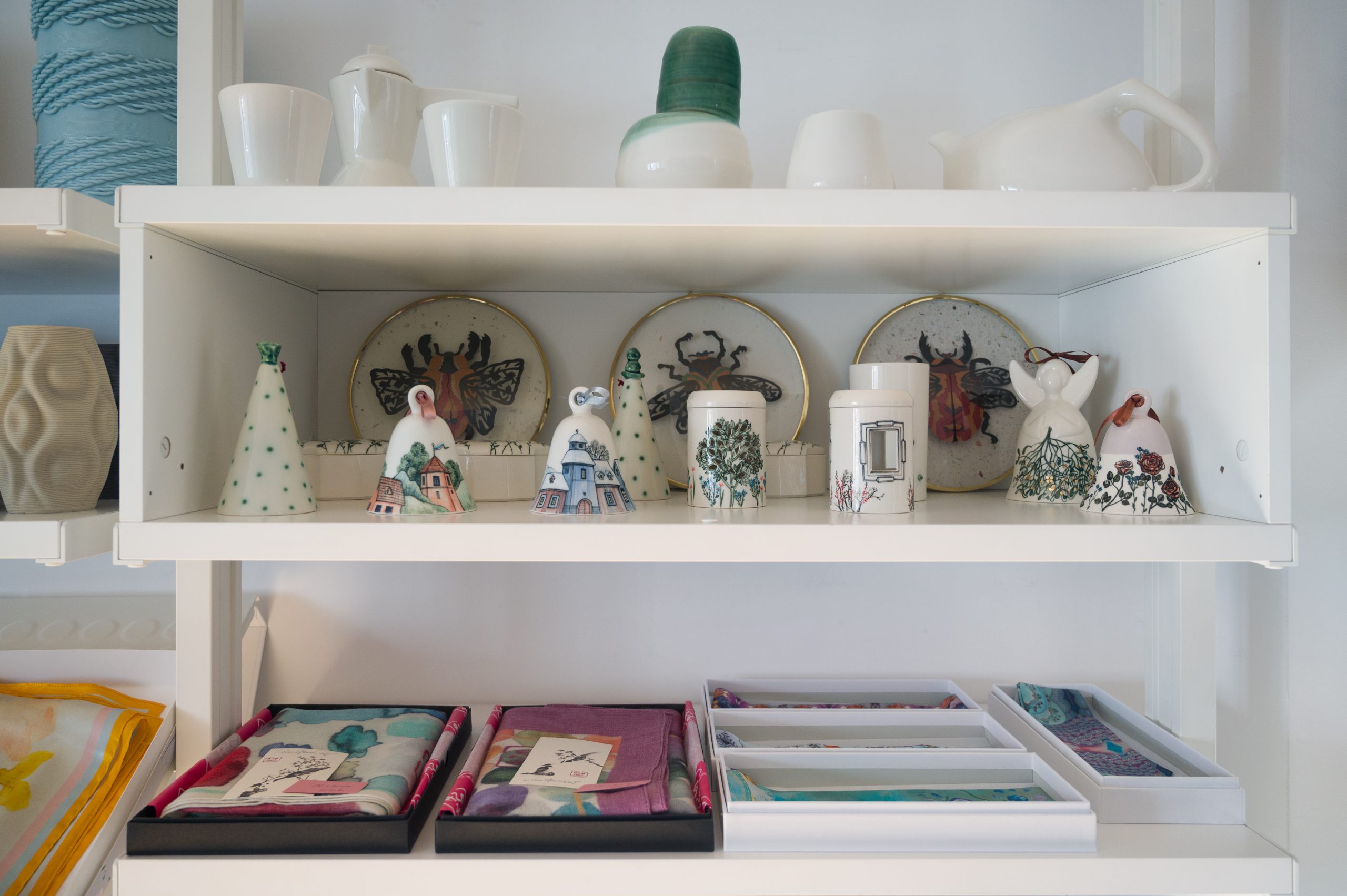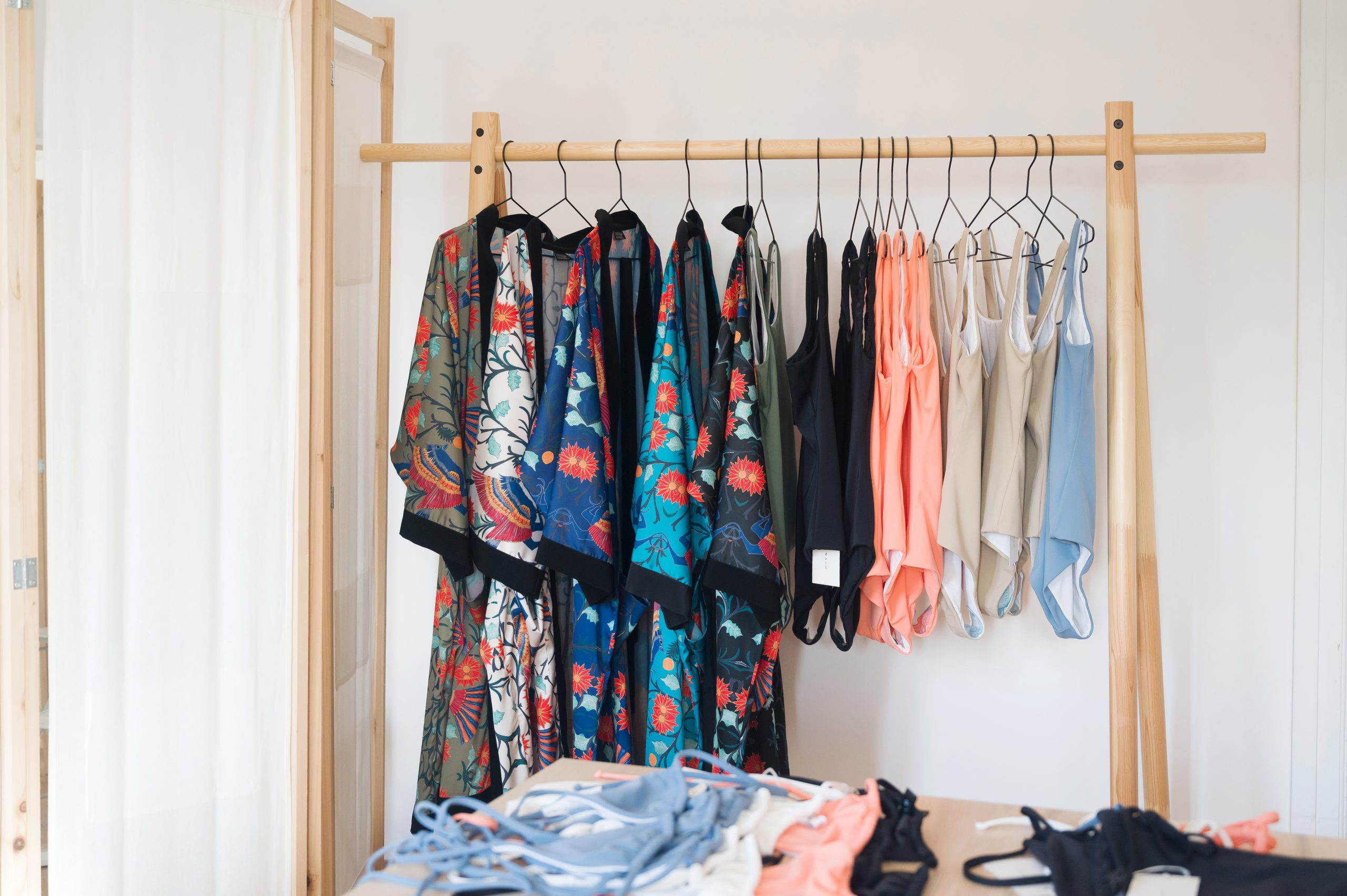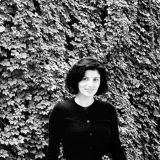After her professional debut in the banking system, six years at the Artmark Auction House, and the organization of the Art Encounters Biennial in Timișoara, Cristina Olteanu decided to develop her own business to promote the creations of Romanian designers and artists.
Thus, in 2018 Cristina Olteanu launches AlbAlb, a project born from a passion for art and design and the desire to bring the creations of local artists closer to art lovers.
AlbAlb, a space dedicated to art and design, brings together hundreds of unique objects from jewelry to ceramic pieces, textile toys, decorations, paintings, illustrations, and limited edition prints.
What was the context in which the AlbAlb project took shape? Did it happen spontaneously or was it a long-considered decision?
A rather varied experience made me find the direction and the courage to start it on my own. An admirer of product design, but also craftsmanship, I wanted to develop my passion constructively, managing a space that would select special products and promote the most creative Romanian workshops. AlbAlb was born out of passion when I felt I had accumulated enough experience to manage such a project. It is a niche that represents me, where I can express myself and bring about positive change, and from there things started to move on their own.
What does AlbAlb mean to you?
For me, AlbAlb is a soul project that represents me, it is a business card of my aesthetic style and a way of interacting with the products in which I believe. It is a place where you come to feel good, to admire things made with passion, todiscusst creativity and beauty. I want to think it is a special place with a strong personality, an oasis of beauty in an eclectic city.
Is there a story regarding the choice of the name AlbAlb?
AlbAlb is a repetition that wanted to convey the feeling of being friendly, playful, and accessible to anyone, contradicting the idea that the design store is a pretentious place where you do not dare to enter. At the same time, I wanted a name with a visual association, because the AlbAlb store is very much about the visual, it stimulates and inspires you aesthetically. And since at AlbAlb you can find exclusively Romanian creators, we chose a name in Romanian, but easy to pronounce by the foreign public looking for local products.

How was the project received by the artistic community? What about the public interested in beauty and creativity?
We enjoyed a very good reception from the beginning; both the artistic environment and the public felt the need for such a space to bring them together. We are talking about a permanent space open all year round and deals with promoting creators and serving customers in search of products made in small domestic workshops. Although there are still a few, if not many, similar projects, the need in the market for such initiatives is still far from being fully covered. Each new appearance is a helping hand for the creators and a good opportunity for the audience to explore.
AlbAlb is an art store that was born from your passion for art and design and the desire to promote the creations of Romanian designers and artists among art lovers. It has recently been 4 years since the inauguration of the AlbAlb space. How would you describe the entire journey?
The 4 years passed quite quickly and were marked by various external events that made each year different. The first months of the pandemic meant major stress, but then they were followed by sharp growth for us. I think people are more willing to support local products these days and we have been happy to see a rapid increase in the number of people who know us, follow us, and decide to stop by. The community has grown much stronger, over time, relationships with some of the creators were forged and friendships were made with some of the loyal customers. I would say that the first 4 years have been an extremely dynamic and rewarding and grateful journey.
How do you feel about the art market/scene right now? How much has it evolved since 2018 – the moment of the opening of the AlbAlb art store – until now?
With AlbAlb I cannot say that I am in the art market, although we also promote pieces of art, especially illustration and prints, but rather in the market of locally made decorations, of local designers and creators, so I will refer to this market.
It is a market that is still in its infancy. There are a number of artisans/designers/product creators who do it for a living and others who do it purely for passion. In addition to their own sites, their products are found in a few stores that specialize in this type of product and a few stores that include these products in their wider offer. There is also the periodic fairs that used to be the only way creators could sell their products offline. More recently, some exclusively online platforms have also appeared. This would be the market in which we operate.
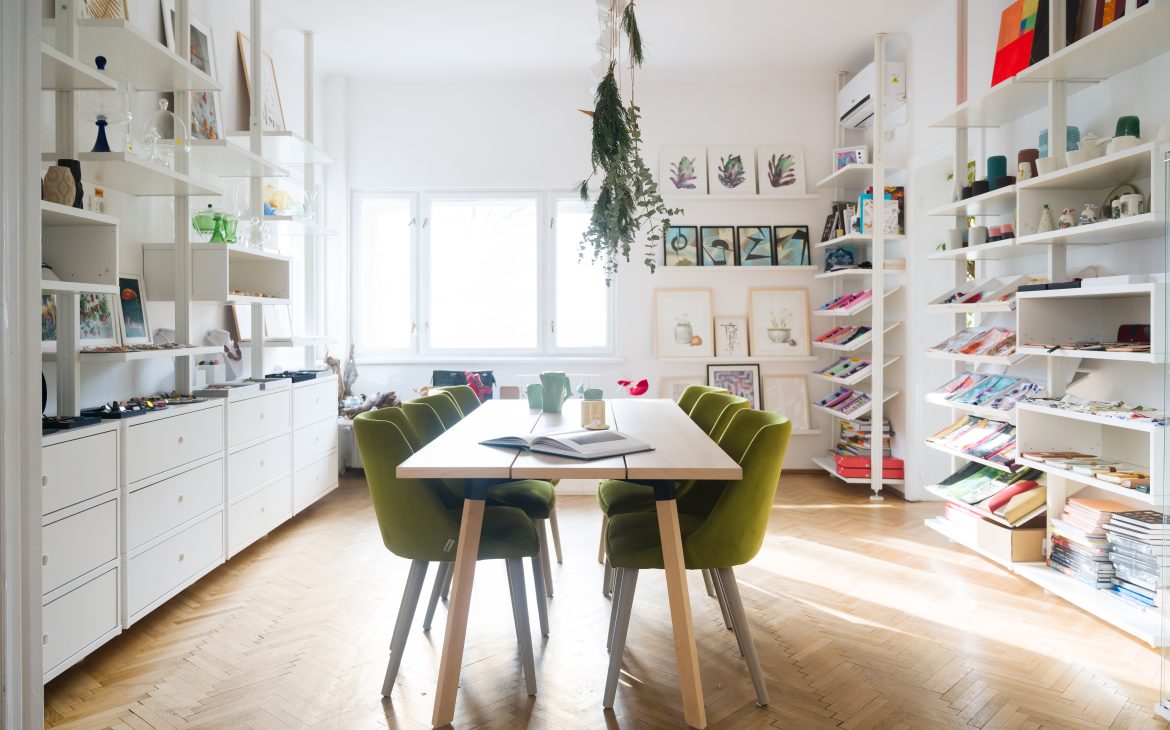
In terms of evolution, in addition to the greater number of active entities in this field, in recent years we have seen a professionalization of some of the creators, from passion it has become the main occupation, they have invested in improving products, in creating a brand and increasing visibility. Product presentation standards, quality of workmanship and after-sales service have improved. Promotion by creators, shops and fairs has also intensified, which has led to the consecration of some brands. At the same time, the public has become more knowledgeable, is more interested in the characteristics of each brand, knows the offer better and expects more professional services.
I think we are on the right track and at the same time there is still a lot of room for growth.
AlbAlb meant an investment of 35,000 Euros. Were you able to amortize your initial investment?
Yes, I was able to amortize the initial investment.
What are the most fascinating or challenging aspects of your day-to-day work as a cultural entrepreneur?
As an entrepreneur, you must be prepared to go through extreme situations and manage difficult moments and exacerbated enthusiasm. Especially when you start on your own, without help operating the business, you also have to do things that you may feel you are not that good at or that you do not enjoy but also need to be done. Perhaps specific to cultural entrepreneurship is the fact that it is a field of passion, you start working in this field when you are attracted to the culture and then you have extra satisfaction, which can be a great advantage at the beginning of the journey. At the same time, passion is also what keeps you moving forward whenever you stumble over obstacles and sometimes makes you forget that you are working and it seems more like a lifestyle (which can also be a long-term trap). But let’s not forget that this niche of the cultural field in which we operate is quiet at the beginning, it is not essential for daily living, so it can be a rather volatile and risky market, without a well-knit system and a solid tradition.
We live in a society that emphasizes production, consumption, profit, and success. To what extent does it influence your selection process of the artists in the store’s portfolio or the exhibited works?
At AlbAlb we try to support especially projects that are thoroughly thought out, for the long term, with sustainably made products. All the products in the AlbAlb store are created by Romanians, usually small workshops of 1-5 people (more than half of them being one-person workshops). Most products are unique or in very small series, they have limited production capacity. We do not keep large stocks or do discount campaigns. We believe that our products are timeless, do not take into account trends and fashion, and are not meant to be consumed quickly. The selection process is based on the story behind the product, originality, quality, presentability of the object, and the creator’s dedication to the project.
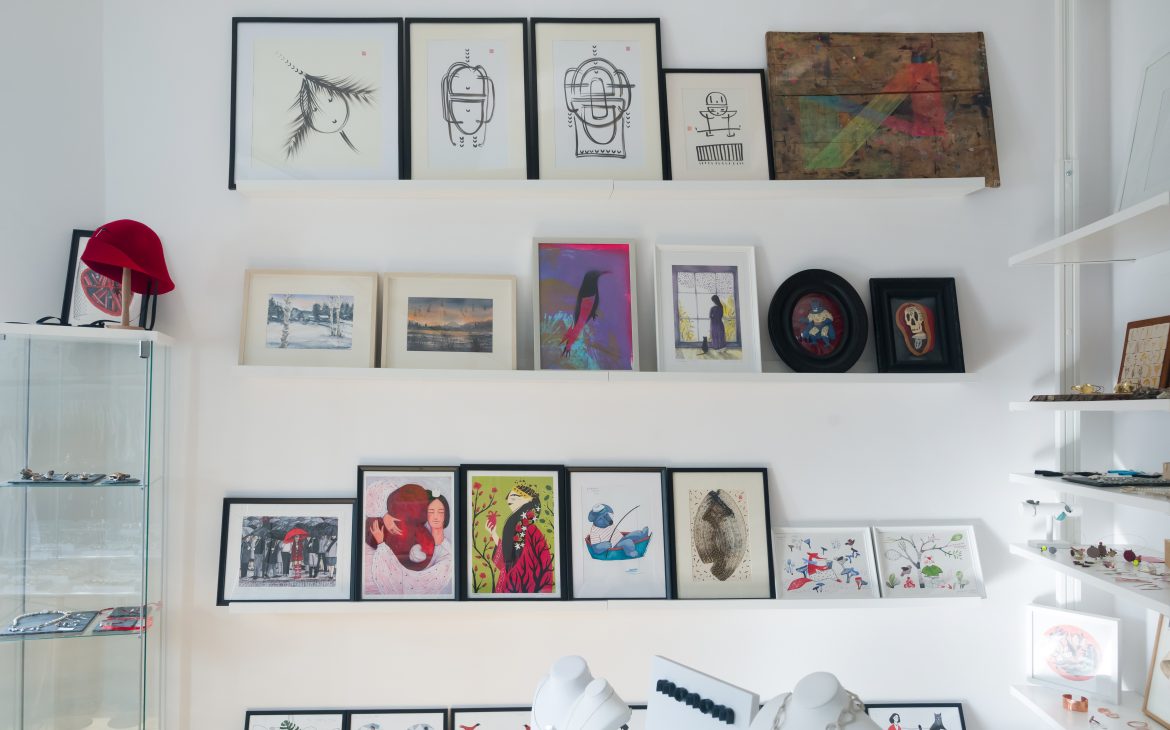
Do you personally handle the selection of works for the store? Do you only display the pieces you like?
As I said earlier, there is a set of basic values that any product exposed at AlbAlb must meet. These are the story, the originality, and the quality, the presentability of the object and the dedication of the creator. Then there is the subjective factor. AlbAlb is a space with a strong character, where products blend harmoniously, so they must also match aesthetically. This visual character is perceived by the customer when he crosses our threshold, so that the store’s audience develops around the appreciation of the same aesthetic sense. In other words, to come back closer to your question, there is no item in the AlbAlb store that I am not convinced of and that I do not feel comfortable promoting.
What is the relationship with the artists that AlbAlb promotes? Do you visit them at the workshop? Do you share your views on their work style, artistic approach, etc.?
I love getting to know artists’ stories and learning as much as possible about their practice. Unfortunately, the schedule at the store does not allow me to visit as many workshops as I would like, and often the artists are the ones who come to the store. I try not to intervene on their way of working, because au-thenticity seems to me to be one of the important ingredients of their products, but we share impressions on the way of presentation and promotion.
The AlbAlb community grew organically. How would you describe the ideal buyer for AlbAlb?
The ideal buyer for AlbAlb is a curious person who takes the time to get to know the product and the story behind it, who looks for authenticity and passion, not quantity, who appreciates talent, work, and craft and can understand the difference between this type of product and one of mass production. It is perhaps like the difference between a person who goes to a slow cooking restaurant that uses mainly local ingredients and a person who chooses fast food. The story behind the product is important to us, but so is the buying experience. We want it to be a human, friendly interaction where we tell stories, discover together and choose consciously.
What does 2023 look like for AlbAlb?
We hope that 2023 will bring AlbAlb closer to maturity. We have grown a lot in recent times and there is a period of consolidation, process improvement, continuous professionalization, which will then allow us to continue to grow sustainably and on a solid basis.
